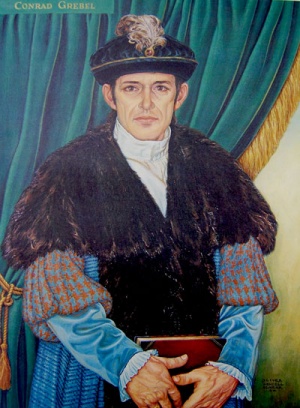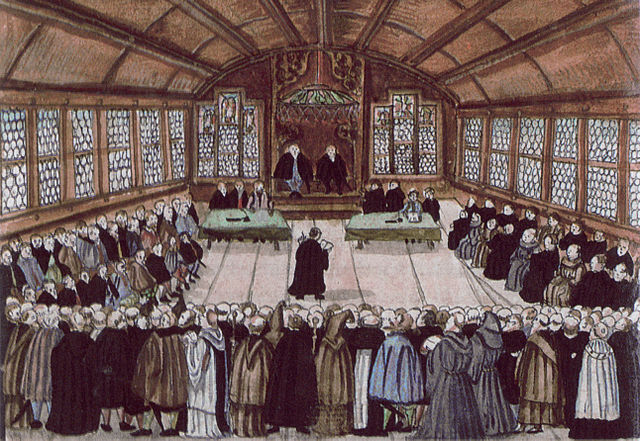
Conrad Grebel
(c. 1498–1526) Reformation era champion of adult baptism and separation of church and state.
Though his entire life was less than 30 years, his Christian ministry was compressed into less than four years, and his time as an Anabaptist was only about a year and a half, Conrad Grebel's impact earned him the title "the Father of Anabaptists". Grebel performed the first known adult baptism associated with the Reformation, and was referred to as the "ringleader" of the Anabaptists in Zürich. Zwingli complained of no major differences with Grebel on cardinal points of theology, and minimized Grebel's differences as "unimportant outward things, such as these, whether infants or adults should be baptized and whether a Christian may be a magistrate."

Yet these differences reveal a deep division of thought on the nature of the church, and the relationship of the church and the Christian to the world. The beliefs of Conrad Grebel and the Swiss Brethren have left an impression on the life and thought of Amish, Baptist, Schwarzenau Brethren/German Baptist, and Mennonite churches, as well as numerous pietistic and free church movements. The Bruderhof Communities, founded in 1920, draw inspiration from the beliefs and actions of Conrad Grebel and the other reformation era Anabaptists. Where others only longed for restitution or shrank from too much reform, Grebel and his group acted decisively and at great personal risk. Freedom of conscience and separation of church and state are two great legacies of the Anabaptist movement initiated by these Swiss Brethren. With Petr Chelčický (1390–1460) of Bohemia, Conrad Grebel is considered one of the first nonresistant Christians of the Reformation. In 1961 a Mennonite University College was named after him in Waterloo, Ontario.
Portrait image courtesy of: Global Anabaptist Mennonite Encylopedia Online